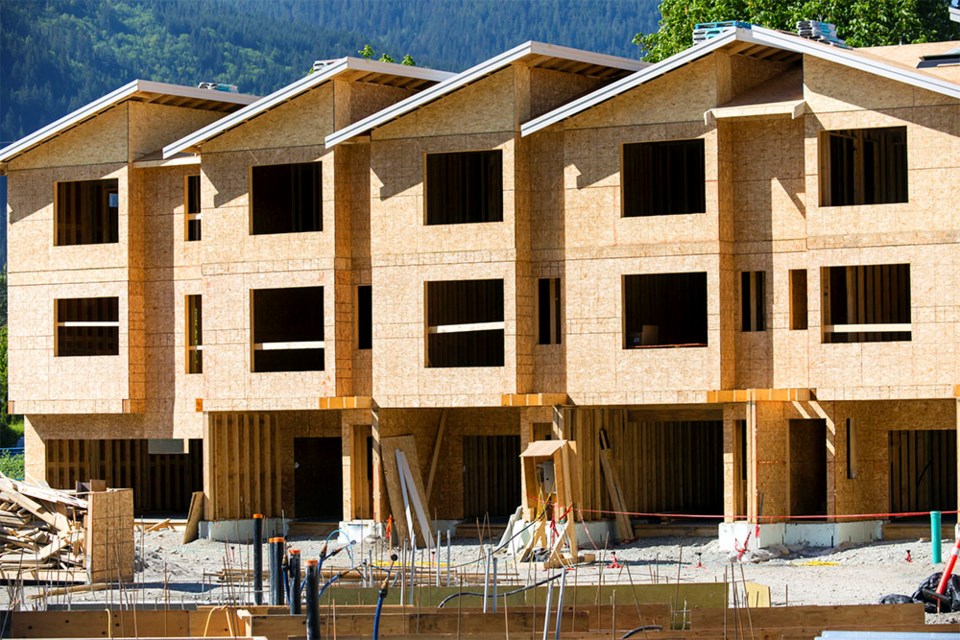With about one year to go until the next municipal election, which will be held in October 2026, locals can bet that creating more housing will continue to be front and centre on council’s agenda.
Creating more housing was a key priority in the District’s 2025 budget, and last week, the provincial government set new housing targets for a fourth round of municipalities, including Squamish, to bring thousands of new homes to communities throughout B.C.
Effective Monday, Sept. 1, 2025, the five-year target for the District of Squamish is 1,069 new units.
That is 75% of the town’s estimated housing need of 1,425, according to the province’s news release on the target.
Though the province has intervened when other communities have failed to meet their targets—like in Oak Bay and West Vancouver, for example— Mayor Armand Hurford told The Squamish Chief the District is on track to meet its target.
“I think we have likely more than that approved already,” he said. But he also explained the challenge of trying to meet the targets when the council doesn’t have total control over the outcome.
“I understand what the province is trying to accomplish here; however, where they're measured is really challenging because, yes, we have control over rezoning areas and all these types of things, but we don't have control over individual landowners’ finances or the actual piece that triggers a building permit, like to actually build it.”
Coquitlam Mayor Richard Stewart has also pointed out that “municipalities control land use, policy and approvals, but ... do not control interest rates, construction costs or labour shortages.”
Whether the increase in supply will mean more truly affordable housing for Squamish is yet to be seen.
At least 27 urbanists—planners, academics and other housing experts—don’t think the province is on the right track with its current housing policies.
They penned a joint letter on Aug. 14 to Premier David Eby and B.C. Minister of Housing and Municipal Affairs Christine Boyle, replete with criticisms and solutions to the housing crisis, Squamish and many towns across B.C. continue to face.
“B.C.'s housing crisis is, above all, a crisis of affordability. Supply has increased significantly in cities like Vancouver—where housing starts have outpaced population growth for decades—yet prices remain disconnected from incomes,” reads the letter.
“Without addressing land value inflation, financial speculation, and tenure security, supply-side interventions risk worsening the very crisis they aim to solve."
Stewart has also said publicly that munis need to see more of the promised support of the province to keep up with health care and child care needs of the new residents to ensure livable communities amidst the housing growth.
As noted by Hurford who isn’t running again next election, if locals want to be at the table for the discussion around Squamish’s affordability, by being on council, now is the time to be tuning in and watching the current cohort of elected officials, so you can be ready to run on the ballot with your solutions.



